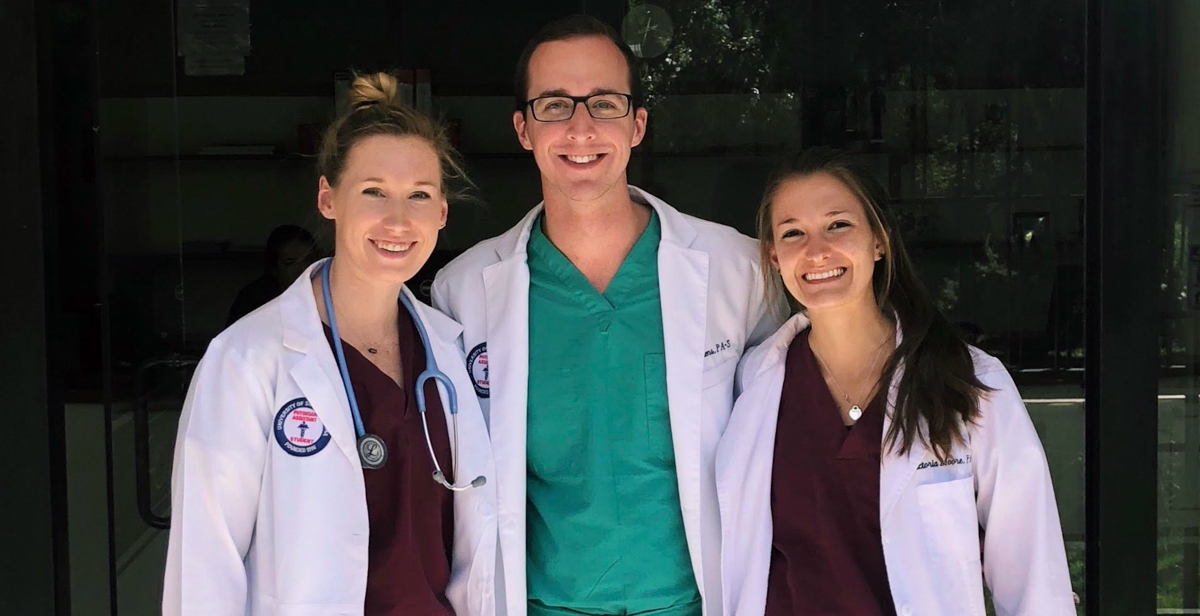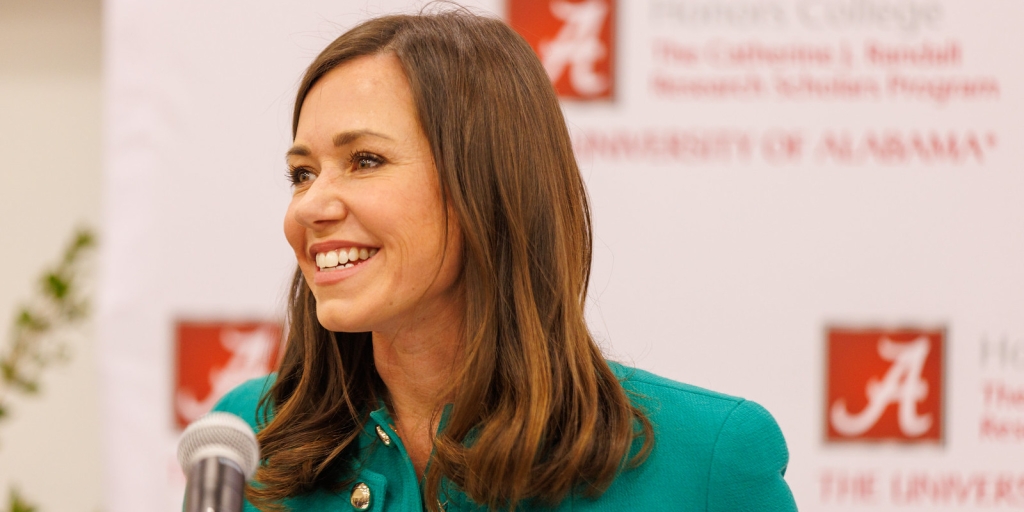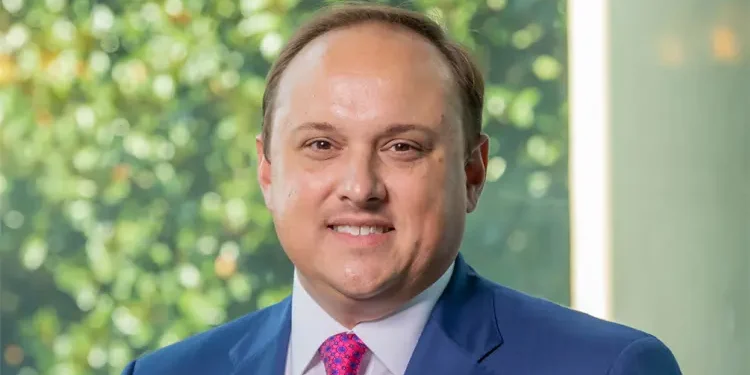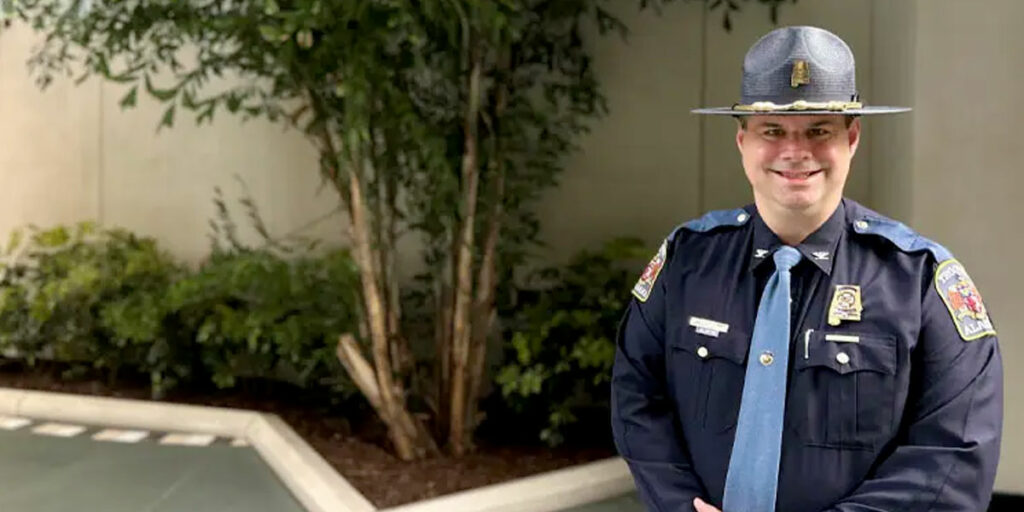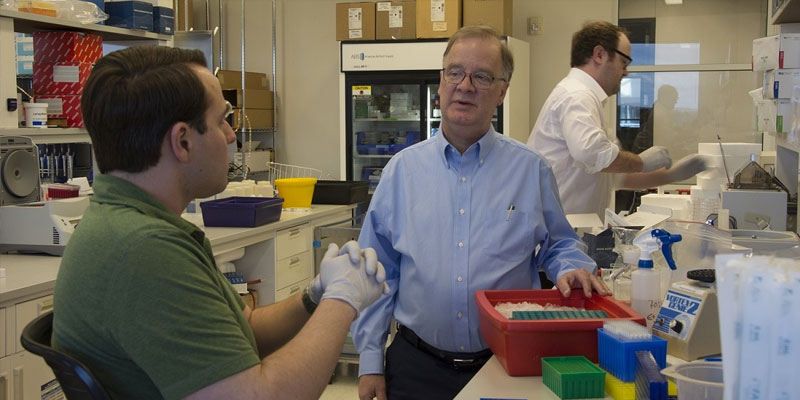Cole Stephens left Anniston, Ala., to enroll in the physician assistant program at the University of South Alabama. This spring he found himself in Peru, with his classmates, treating patients at risk for cervical cancer.
“We serviced 237 women patient by doing Pap smears for about three hours,” Stephens said. “We were worn out by the end of our shift, but it was very rewarding.” The physician assistant graduate students work six days a week for three weeks at a time at the clinic in Cusco, Peru, a country that has one of the highest rates of cervical cancer in the world.
Cervical cancer affects nearly every family in Cusco. Fourteen physician assistant, or PA, graduate students from South Alabama traveled to the CerviCusco clinic, which is managed by a medical organization founded in 2008.
Stephens didn’t have big expectations when he agreed to go on this global medical rotation.
“I just wanted to go and learn,” he noted. “But, this experience was much more than what I had anticipated. I am so happy that I had this opportunity to use what I have learned in class in a real-life situation.”
Dr. Gregory Frazer, dean of the Pat Capps Covey College of Allied Health Professions at South Alabama, said this global clinical rotation is an opportunity for PA students to serve a community and get much-needed training and experience.
“We are always pursuing opportunities to enhance the learning and clinical experience for our students,” Frazer said. “Patients in Peru travel a full day to come to the market area to receive the Pap test or treatment at the portable satellite clinics. Our students are able to touch and help save lives and in one day they see more cases in Peru than they would see in one entire clinical rotation here in Mobile. Our students learned the importance of being culturally sensitive to better care for the patients. This is an international partnership that’s working for South’s PA students and the Peruvian people.”
Twenty-two PA students from South will go to Peru in the 2019-2020 academic year, and Frazer and the faculty are working to expand the clinical rotations to include students from all of the programs in the College.
“We are really pleased that our PA graduate students have this unique opportunity to travel abroad and get much-needed medical experience and help save lives,” said Stephanie McGilvray, USA’s physician assistant program director. “This is the first international rotation for South’s PA students, and South Alabama is the first university in the state to participate in an international PA rotation.”
It’s not mandatory that the students do the medical rotation in Peru, but for those who are interested, they can fundraise to pay for their airfare, room, board, food and expenses.
“We got to meet the local people where they were,” PA student Adam Simpson said. “We set up little clinics all over town where people could come and get good health care. The people were so appreciative of our work. They were always friendly and smiling.”
As McGilvray researched a women’s health rotation opportunity for the PA students, she was surprised to receive a random email from the founder of CerviCusco, Dr. Daron G. Ferris, a professor of family medicine, obstetrics and gynecology at Augusta University. The goal of the unique program that’s been helping the Peruvian people for 11 years is to provide free medical services to prevent, detect and treat cervical cancer. Ferris extended an invitation to McGilvray to have the University consider sending PA students to Peru.
She set up a Skype call with Frazer and Ferris. McGilvray and Frazer then traveled to visit and evaluate the facility and program in Peru this past January before sending students.
“We were very impressed with the five-story facility, which has the clinic on one floor, and sleeping and living areas for the students on the second floor. Offices, an auditorium and classrooms are on the remaining floors of the building,” she said.
“We would go with students from other universities on what they called ‘campaigns’ to the market areas. They would set up tents and performed around 160 Pap smears during the morning hours. The women lined up and waited patiently for the Pap test. Then the women would follow up several weeks later to get the results of the Pap test to see if they are at risk or have cervical cancer. Many of them have been touched by the death or sickness of a friend or family member who had cervical cancer.”
McGilvray said the pharmaceutical company Merck has donated the HPV vaccine, so they have given 30,000 injections and she said they have seen a decrease in cervical cancer.




